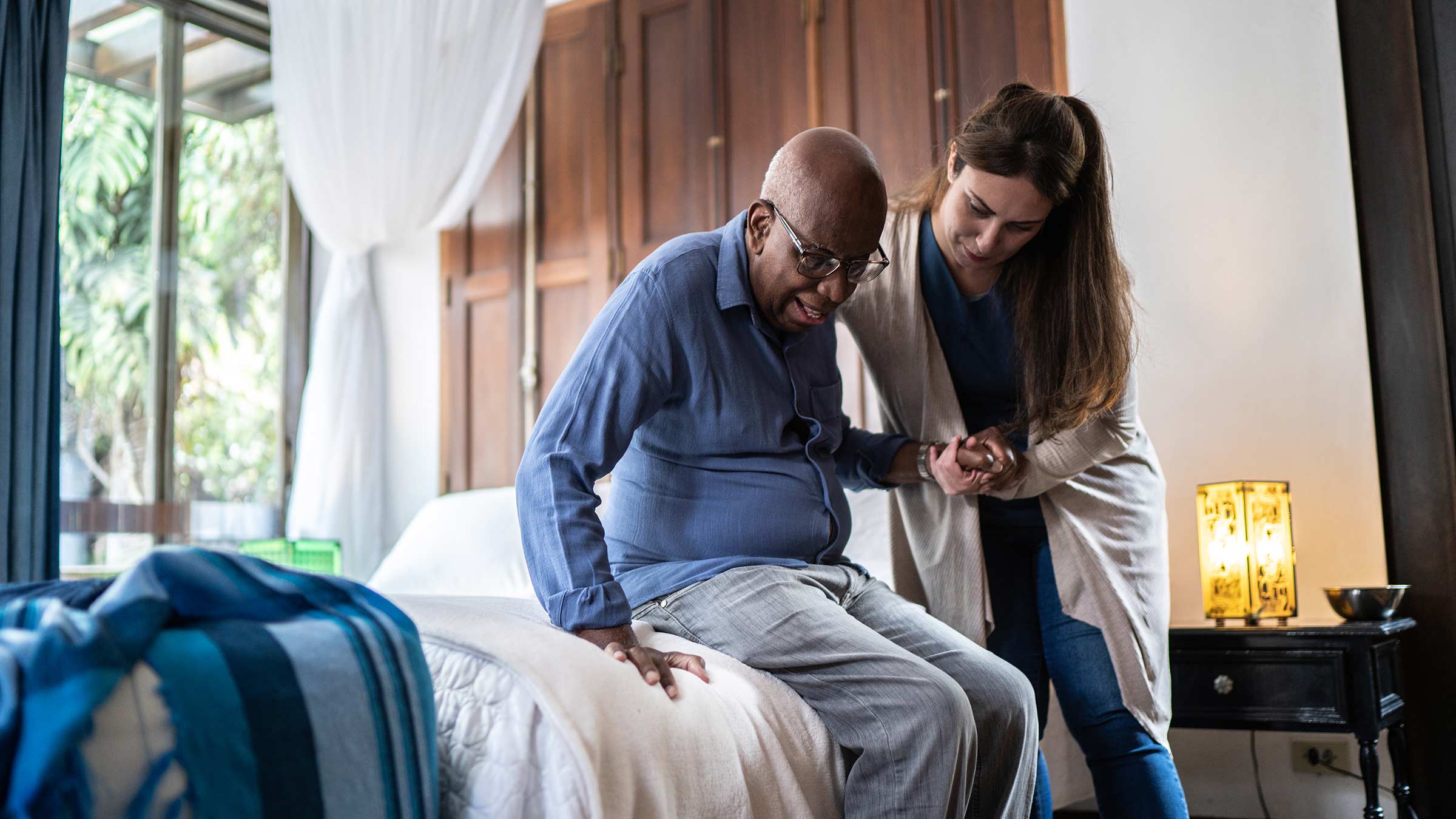
If you’ve spent time around a loved one as they age, you may notice that they tend to become weaker. In some cases, you may find that the word “frail” comes to mind when you see how weak they become.
Many people assume this is a natural part of the aging process. But there’s good news: Not only is frailty avoidable as we age, it’s also something we can reverse if it starts settling in.
What is frailty?
Frailty is a health condition that makes it harder for the body to recover from stress, such as illness, injury or emotional strain. It’s not just a normal part of getting older. Instead, frailty occurs when the body’s strength, energy and ability to recover start to decline.
Common signs of frailty include:
- Feeling unusually tired or worn out
- Losing weight without trying
- Moving or walking more slowly
- Having weaker muscles or grip strength
- Being less physically active than usual
Individuals who are frail may be more susceptible to falls, illnesses or prolonged recovery times. But frailty can often be slowed down or even improved with the right support — like staying active, eating well, managing medical conditions, and staying socially and mentally engaged. The earlier it’s noticed, the more we can do to help maintain health and independence.
What causes frailty?
Frailty typically develops when a combination of health-related and lifestyle factors accumulates over time. These may include:
- Loss of muscle strength (sarcopenia) due to aging or inactivity
- Chronic conditions like diabetes, arthritis or heart disease
- Poor nutrition, including not getting enough protein or essential vitamins
- Mental health concerns, such as depression or cognitive changes
- Lack of physical activity or reduced mobility due to illness or injury
Every one of these causes is modifiable to some degree, meaning there are real opportunities for prevention and improvement.
Can social isolation help cause frailty?
Yes, probably more than most people realize. Social isolation doesn’t just make someone feel lonely; over time, it can take a real toll on both physical and mental health.
When people are isolated, they’re often less active. They might not eat as well, may skip medical appointments, or stop managing their health the way they used to. And without regular contact with others, it’s easy for small problems like fatigue, sadness or minor aches and pains to go unnoticed or untreated.
A weekly phone call with a friend, chatting with a neighbor, joining a local class or group, or spending time with family can all make a difference. The key is having relationships that bring meaning, joy and a sense of being seen.
Is frailty genetic?
There is some evidence that genetics may influence how quickly someone loses muscle mass or how their body responds to stressors. However, research consistently shows that daily habits — such as staying physically active, eating a balanced diet and maintaining social connections — play a significantly greater role in determining overall health and resilience.
Can frailty be reversed?
Yes — frailty can be improved and, in many cases, it can even be reversed. This is especially true when it’s caught early. When someone starts showing early signs — like slowing down, feeling more tired than usual, or losing weight without trying — that’s often a sign of what we call “pre-frailty.” It’s a signal to pay attention, not panic. And the good news is that there’s a lot we can do.
Here’s what that might look like in practice:
- Moving more: A tailored exercise plan, even something as simple as walking or chair-based strength training, can help improve balance, reduce fall risk and bring back a sense of confidence.
- Eating better: Making sure meals have enough protein and nutrients can boost strength and energy, especially if weight loss or poor appetite has been an issue.
- Revisiting medications: Sometimes the medications we take to help can also slow us down. Reviewing them with a doctor or pharmacist can help reduce side effects like dizziness, fatigue or confusion.
- Sleeping well and connecting more: Good rest, social interaction and mental stimulation can lift mood, sharpen thinking and help keep you motivated to stay active.
What should I do if I suspect frailty is setting in — for me or a loved one?
Start by having a conversation with a trusted health care provider. Describe the changes you’re noticing, whether that’s increased fatigue, more frequent falls or just “something seems off.” Ask for a frailty or functional assessment, which might include:
- Walking speed or grip strength
- Weight changes
- Cognitive or mood screening
- Medication and nutritional review
From there, a plan can be made. The earlier it starts, the more options are available.






